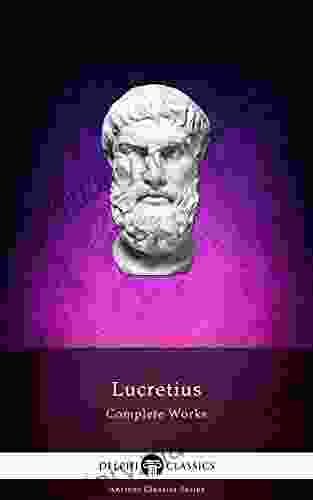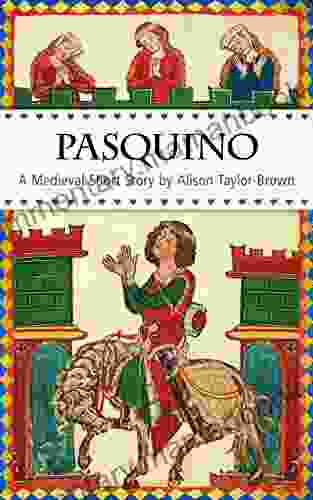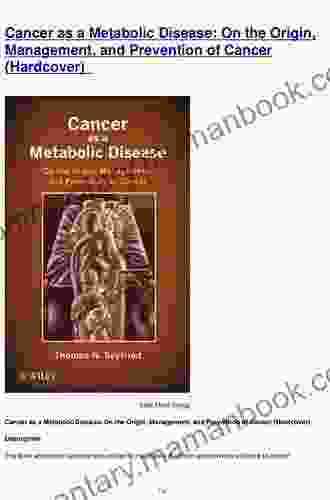On the Origin, Management, and Prevention of Cancer: A Comprehensive Guide to Understanding and Combating the Disease

Cancer, a complex and deadly disease, has plagued humanity for centuries. Its elusive nature and devastating effects have driven researchers and medical professionals to relentlessly pursue a deeper understanding of its origins, effective management strategies, and preventive measures. This comprehensive article aims to provide a thorough overview of cancer, exploring its multifaceted aspects, from its fundamental etiology to cutting-edge treatment approaches and preventive strategies.
Understanding the Genesis of Cancer: The Seed of a Malignant Transformation
Cancer arises from a fundamental disruption of normal cellular processes. Within our bodies, trillions of cells divide and multiply in a highly regulated manner. This intricate choreography is essential for growth, tissue repair, and maintaining the integrity of our physical form. However, under certain circumstances, this delicate balance can be thrown into disarray, giving rise to the insidious development of cancer.
4.5 out of 5
| Language | : | English |
| File size | : | 39138 KB |
| Text-to-Speech | : | Enabled |
| Screen Reader | : | Supported |
| Enhanced typesetting | : | Enabled |
| Print length | : | 448 pages |
| Lending | : | Enabled |
The genesis of cancer can be attributed to two primary causes: genetic mutations and environmental factors. Genetic mutations can result from various sources, including inherited genetic alterations, radiation exposure, and certain chemical carcinogens. These mutations disrupt critical genes involved in cell growth and division, leading to uncontrolled cellular proliferation and the formation of malignant tumors.
Environmental factors, such as tobacco smoke, excessive alcohol consumption, and exposure to certain toxins, can also promote cancer development. These factors can damage the DNA within cells, increasing the likelihood of mutations and disrupting the normal cellular machinery.
Managing Cancer: A Multipronged Approach to Combating the Disease
The management of cancer encompasses a comprehensive array of strategies, tailored to the specific type and stage of the disease. The primary treatment modalities include surgery, chemotherapy, radiation therapy, and targeted therapies.
Surgery: Surgical intervention aims to physically remove the tumor from the body. This approach is often the preferred option when the cancer is localized and has not spread to other parts of the body.
Chemotherapy: Chemotherapy involves the administration of potent drugs designed to kill cancer cells. These drugs target rapidly dividing cancer cells but can also affect healthy cells, leading to side effects such as nausea, vomiting, and hair loss.
Radiation Therapy: Radiation therapy utilizes high-energy radiation to destroy cancer cells or prevent their growth. Radiation can be delivered externally, using a machine, or internally, through the implantation of radioactive materials into or near the tumor.
Targeted Therapies: Targeted therapies are drugs that specifically target molecules involved in cancer cell growth and survival. By blocking these molecules, targeted therapies can inhibit tumor growth and spread.
In addition to these primary treatment modalities, a growing number of novel therapies are emerging, including immunotherapy, gene therapy, and personalized medicine. Immunotherapy harnesses the power of the immune system to fight cancer, while gene therapy involves altering the genetic makeup of cancer cells to make them more susceptible to treatment. Personalized medicine tailors treatment strategies based on the individual's genetic profile and tumor characteristics, increasing the likelihood of successful outcomes.
Preventing Cancer: Empowering Individuals to Take Charge of Their Health
While cancer remains a formidable opponent, there are proactive measures individuals can take to reduce their risk of developing the disease. These preventive strategies include:
Adopting a Healthy Lifestyle: Maintaining a healthy weight, engaging in regular physical activity, and consuming a balanced diet rich in fruits, vegetables, and whole grains are essential pillars of cancer prevention. A healthy lifestyle helps maintain overall well-being, reduces inflammation, and supports a robust immune system.
Avoiding Tobacco and Excessive Alcohol: Tobacco smoke and excessive alcohol consumption are major risk factors for various types of cancer. Quitting smoking and limiting alcohol intake significantly reduces the risk of developing these cancers.
Vaccinations: Certain vaccines can protect against cancer-causing infections, such as HPV (human papillomavirus) and hepatitis B. Vaccinations are an effective way to prevent these infections and reduce the associated cancer risk.
Early Detection and Screening: Regular cancer screenings, such as mammograms, colonoscopies, and Pap tests, can detect cancer at an early stage, when treatment is most effective. Early detection significantly improves survival rates and reduces the likelihood of aggressive treatment.
Cancer remains a complex and challenging disease, but significant progress has been made in understanding its origins, developing effective management strategies, and empowering individuals with preventive measures. Through continued research, innovation, and a concerted effort to adopt healthy lifestyles, we can work towards reducing the burden of cancer and improving the lives of those affected by this devastating disease.
Additional Resources
4.5 out of 5
| Language | : | English |
| File size | : | 39138 KB |
| Text-to-Speech | : | Enabled |
| Screen Reader | : | Supported |
| Enhanced typesetting | : | Enabled |
| Print length | : | 448 pages |
| Lending | : | Enabled |
Do you want to contribute by writing guest posts on this blog?
Please contact us and send us a resume of previous articles that you have written.
 Top Book
Top Book Novel
Novel Fiction
Fiction Nonfiction
Nonfiction Literature
Literature Paperback
Paperback Hardcover
Hardcover E-book
E-book Audiobook
Audiobook Bestseller
Bestseller Classic
Classic Mystery
Mystery Thriller
Thriller Romance
Romance Fantasy
Fantasy Science Fiction
Science Fiction Biography
Biography Memoir
Memoir Autobiography
Autobiography Poetry
Poetry Drama
Drama Historical Fiction
Historical Fiction Self-help
Self-help Young Adult
Young Adult Childrens Books
Childrens Books Graphic Novel
Graphic Novel Anthology
Anthology Series
Series Encyclopedia
Encyclopedia Reference
Reference Guidebook
Guidebook Textbook
Textbook Workbook
Workbook Journal
Journal Diary
Diary Manuscript
Manuscript Folio
Folio Pulp Fiction
Pulp Fiction Short Stories
Short Stories Fairy Tales
Fairy Tales Fables
Fables Mythology
Mythology Philosophy
Philosophy Religion
Religion Spirituality
Spirituality Essays
Essays Critique
Critique Commentary
Commentary Glossary
Glossary Bibliography
Bibliography Index
Index Table of Contents
Table of Contents Preface
Preface Introduction
Introduction Foreword
Foreword Afterword
Afterword Appendices
Appendices Annotations
Annotations Footnotes
Footnotes Epilogue
Epilogue Prologue
Prologue Jim Lusk
Jim Lusk Orion Carloto
Orion Carloto Josh Armstrong
Josh Armstrong Hiag Akmakjian
Hiag Akmakjian Ryan Westfield
Ryan Westfield Kevin Curry
Kevin Curry John A Garraty
John A Garraty Douglas E Richards
Douglas E Richards Paul Muldoon
Paul Muldoon Barbara Sheklin Davis
Barbara Sheklin Davis Ted Bell
Ted Bell Laurence J Brahm
Laurence J Brahm Ratan Kaul
Ratan Kaul Steven Moore
Steven Moore Jennifer Allen
Jennifer Allen Michael Curtis Ford
Michael Curtis Ford Lance P Richards
Lance P Richards Kishan Barai
Kishan Barai Laura Lippman
Laura Lippman Paul Hanley
Paul Hanley
Light bulbAdvertise smarter! Our strategic ad space ensures maximum exposure. Reserve your spot today!

 Christopher WoodsDelphi Complete Works of Lucretius Illustrated: Delphi Ancient Classics 46
Christopher WoodsDelphi Complete Works of Lucretius Illustrated: Delphi Ancient Classics 46
 Desmond FosterUnveiling the Enchanting Triple Moon Phase Filet Crochet Ruana: A Tapestry of...
Desmond FosterUnveiling the Enchanting Triple Moon Phase Filet Crochet Ruana: A Tapestry of...
 Quincy WardBrain Training for Reversals: Unleashing Cognitive Transformation for Reading...
Quincy WardBrain Training for Reversals: Unleashing Cognitive Transformation for Reading... Allan JamesFollow ·12.6k
Allan JamesFollow ·12.6k Isaias BlairFollow ·2.3k
Isaias BlairFollow ·2.3k Craig CarterFollow ·19.7k
Craig CarterFollow ·19.7k Brent FosterFollow ·16.8k
Brent FosterFollow ·16.8k Lord ByronFollow ·18.8k
Lord ByronFollow ·18.8k Ralph TurnerFollow ·8.7k
Ralph TurnerFollow ·8.7k Robbie CarterFollow ·12.9k
Robbie CarterFollow ·12.9k Brian BellFollow ·14.2k
Brian BellFollow ·14.2k

 Kelly Blair
Kelly BlairSheppard Lee Written By Himself: A Journey of...
In the realm of...

 George Bernard Shaw
George Bernard ShawViper Naga Brides: Unveiling the Enthralling Fantasy...
In the realm of...

 Neil Gaiman
Neil GaimanOnce Upon a Hill in Tuscany: A Medieval Short Story
In the heart of medieval...

 Preston Simmons
Preston SimmonsBody Bereft: Exploring Loss, Love, and Legacy in Antjie...
A Poetic Requiem for the Lost:...

 Percy Bysshe Shelley
Percy Bysshe ShelleyThe Amazing Story Of Robert Smalls Escape From Slavery To...
The life of Robert Smalls is a testament to...
4.5 out of 5
| Language | : | English |
| File size | : | 39138 KB |
| Text-to-Speech | : | Enabled |
| Screen Reader | : | Supported |
| Enhanced typesetting | : | Enabled |
| Print length | : | 448 pages |
| Lending | : | Enabled |








